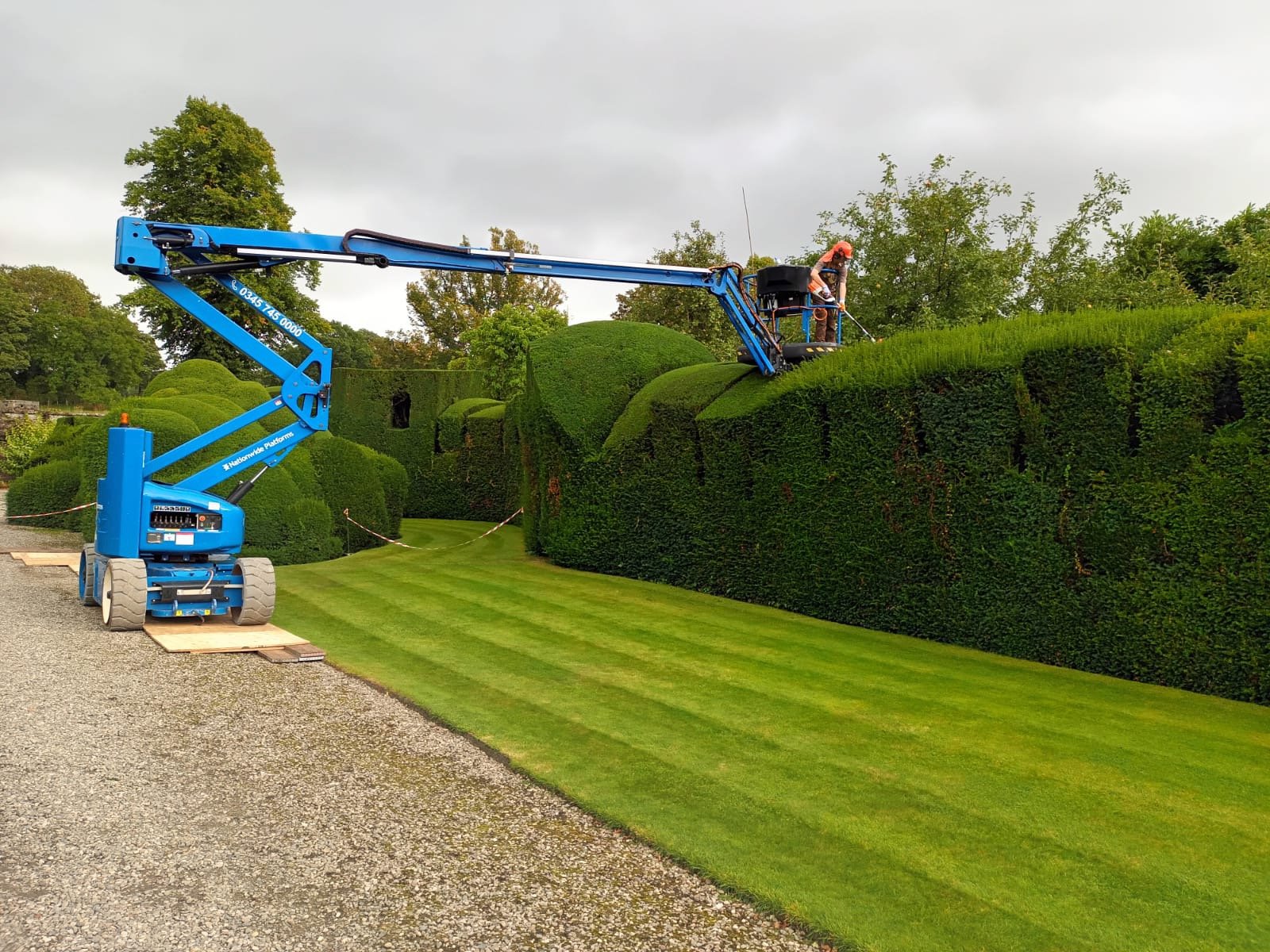Pam Howson
Gardener at Levens Hall
Pam Howson has been working as a gardener at the magnificent Levens Hall Gardens for 3 years. This is where I had the luck to get to know this wonderful, talented gardener and comic artist.
Levens Hall Gardens is largely unchanged since it was created by the French gardener Guillaume Beaumont in the 17th century, almost all essential elements that can be compared to old maps have survived remarkably intact. The most famous part is the world’s oldest topiary garden with an ever-changing colourful underplanting, which is all grown in the greenhouse onsite.
But besides the visitor magnet »the funny trees« as a child once called the magical and surreal box and yew topiary, Levens has a lot to offer, and from a gardener’s perspective – to maintain. There is the giant beech hedge, the red border, the pastel border, a decorative vegetable garden, the willow labyrinth, a beautiful rose garden, wildflower meadow, an orchard, tastefully planted wall borders, a peaceful fountain garden…
Besides working at Levens Hall, Pam also has her own gardening service in the area of Kendal, where she takes care of private gardens.
How did you become a gardener and how a Levens gardener? Please tell us about your early days working at Levens Hall and how it has evolved for you.
I have my Horticultural College to thank for introducing me to Levens Hall. I began a course on Amenity Horticulture in 2002. I hadn't really done any gardening before this. The course mostly appealed to me because it meant I could work outdoors. But my other loves of art and chemistry are also very important in the world of gardening.
I knew for definite I'd made the right career choice when my work experience took place at Levens Hall in 2003. Putting into practice what I'd learned at college, and working with great people - you never stop learning about plants and best garden practice. It encouraged me to go onto further training with RHS Harlow Carr in 2004/2005. After this I established my own gardening round in the Kendal area. While still keeping in touch with Levens, I was offered a part time contract in 2019, and I've loved being back ever since.
It is March 2022, what needs to be done at Levens right now?
The Orchard has just been rediscovered! The borders contain wildflower seed mixes, but last summer the tenacious weeds and grasses and the more thug-like biennials like dame's violet had overwhelmed the poor wildflowers. So a clean slate was needed to start again. The weeds have been removed, and there will be a second attack to remove what germinates in a couple of weeks. New seed has arrived, so will be sown in about a month.
Also the Orchard trees themselves had got overgrown and congested, so an enthusiastic thinning and crown lifting of trees involved a lot of sawing! This will also get more light to the wildflowers in summer.
The Gardeners at work in the Orchard
Possibly the most intense part of the Levens Hall gardening year starts TODAY (21st March). The Spring bedding out will begin, and hope to get all 15,000 Bellis and Pansies planted by opening day 3rd April!
These plants were sown as seed in September, pricked out into six-packs three/four weeks later, brought outside at the beginning of March to harden off and now will be planted out using trowels. Preparing the topiary beds is key, by digging in our own compost made from previous years bedding plants and then rake all of the topiary beds flat. Makes it easy to get the plants in quickly.





Spring bedding in the topiary garden
What do you love the most about gardening in general and what specifically about gardening at Levens Hall? In what way do those kinds of works differ?
It's still working outdoors is why I love gardening. Being in touch with the soil, plants and the weather ( how British! )
Levens Hall Gardens have the extremes of scale that are demanding, but seeing physically what you have achieved is very fulfilling and I'm very proud of what I do. All while working with like minded people, Levens Hall is a fun place to work.
I particularly love about Levens that it can feel like a time machine connecting with the past, all the gardeners throughout the years have inscribed themselves in some way or other into the plants, the soil and the structure of the garden.
It is one question that always arises with old trees: what could they tell us if they could talk?
Working in a garden, that is in parts 300 years old also comes with a lot of responsibility. How do you feel about the age of the garden, the cultural heritage that you are part of preserving?
It is an honour to be a small part of the grand history of Levens. Following the footsteps of previous gardeners and hopefully setting it right for those that follow. I do wonder what the gardeners of the past would think of the tools we use now to maintain the topiary!
It can be sad if parts of the garden fail. If topiary dies (box blight is a problem) or trees are brought down in high winds (the Cedar of Lebanon was blown down in 2005) can all feel like a disaster... But then becomes a new opportunity to improve the garden. New plant species or new layouts? For this reason I don't feel responsible for preserving the garden - more that we are keeping the garden evolving for the better.
This might be like asking a parent for their favourite child – but do you have an area, a plant at Levens that you love the most?
We tried a new idea at Levens last Summer. Left over annuals were randomly planted in an empty bed (formally home to a ginkgo tree) in the centre of the rose garden.
These included cosmos, salvia, nicotiana, verbena, ageratum and cleome. They were fantastic, a brilliant high, frothy flowery mix. All surrounded by the brilliant sight and scent of the roses, and framed by the unique topiary. It was also a big hit with the visitors to the gardens and the bees!
Though as the gardens keep changing, I'll have a new favourite this year!!
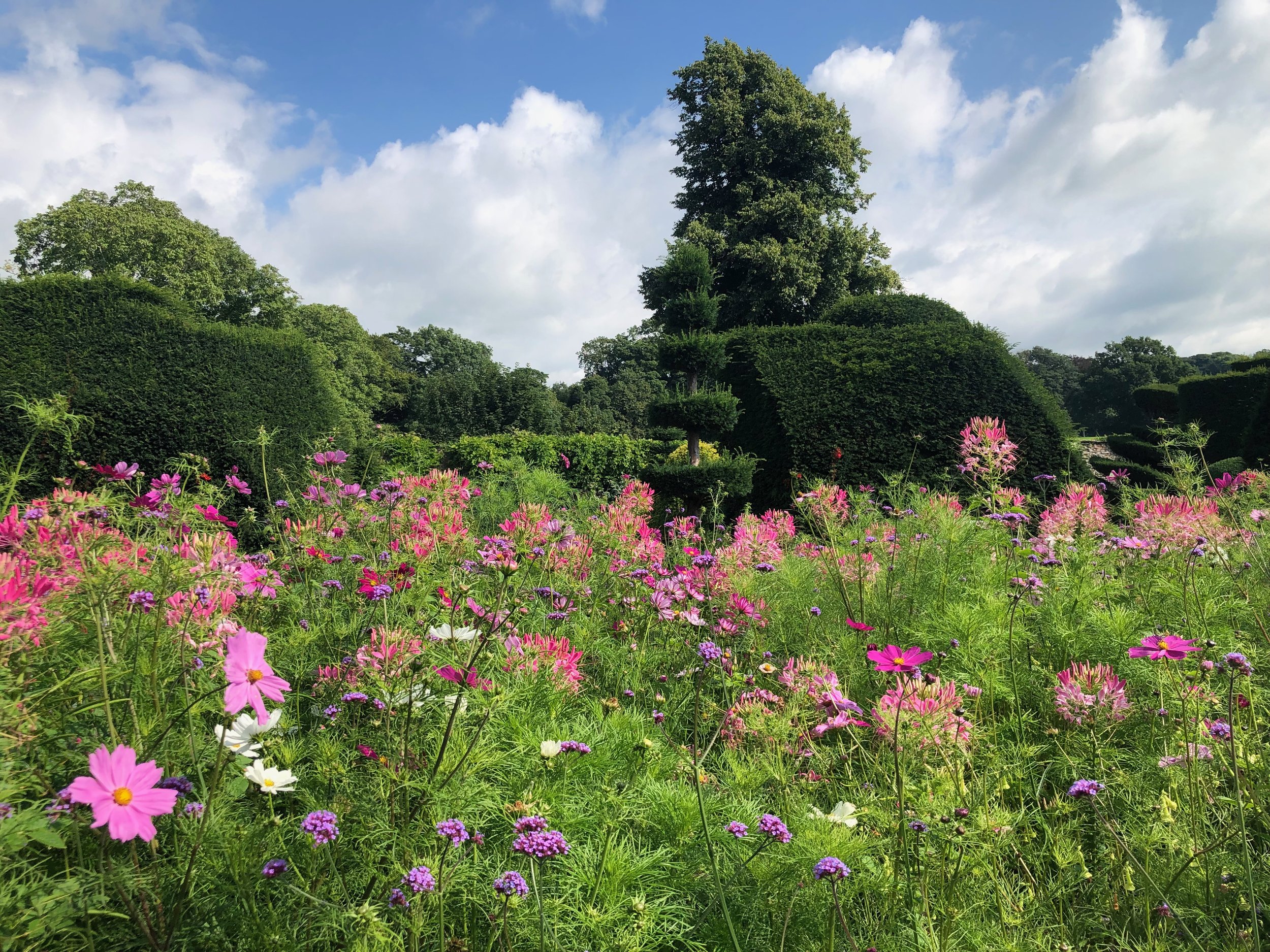

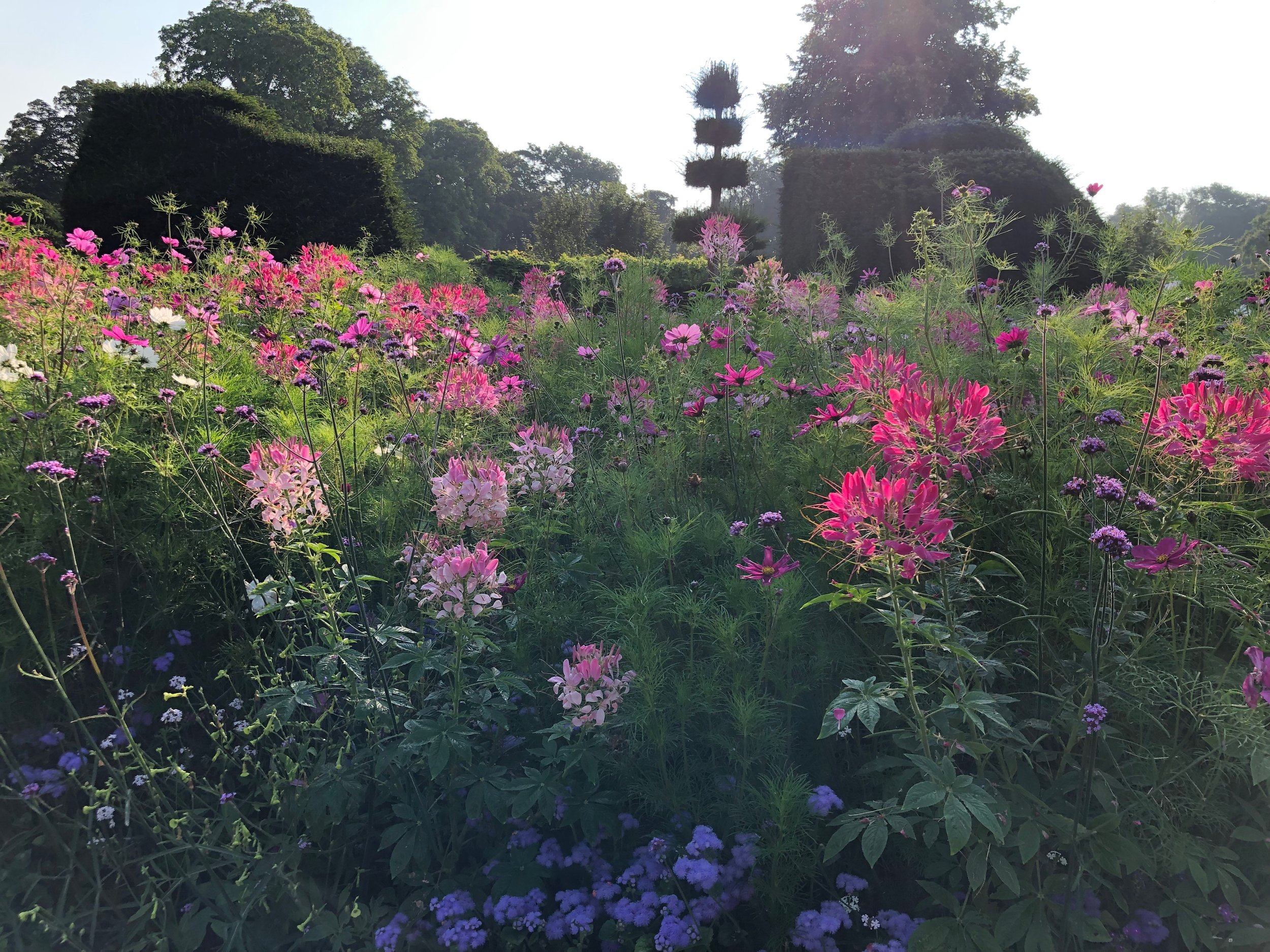
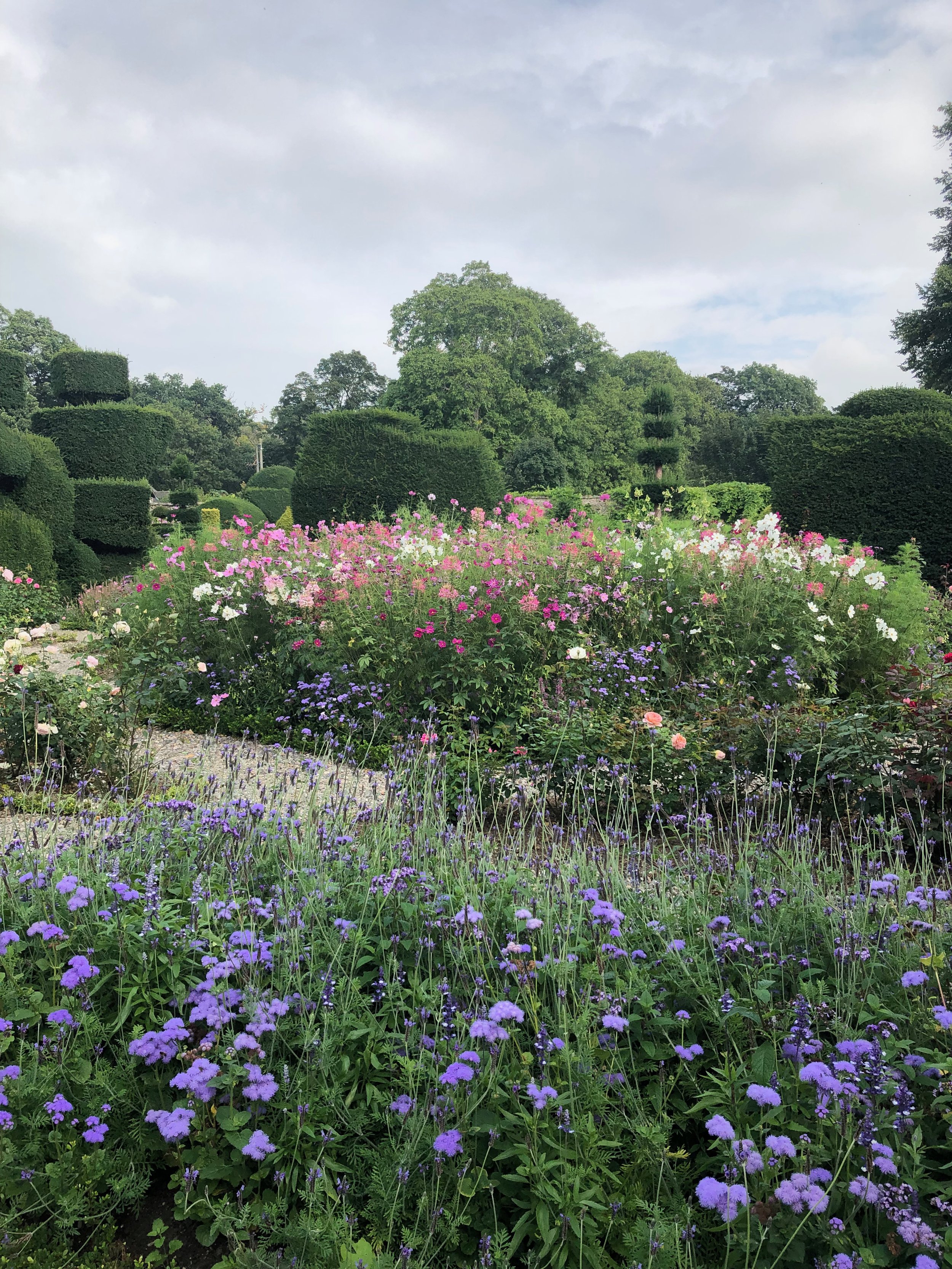
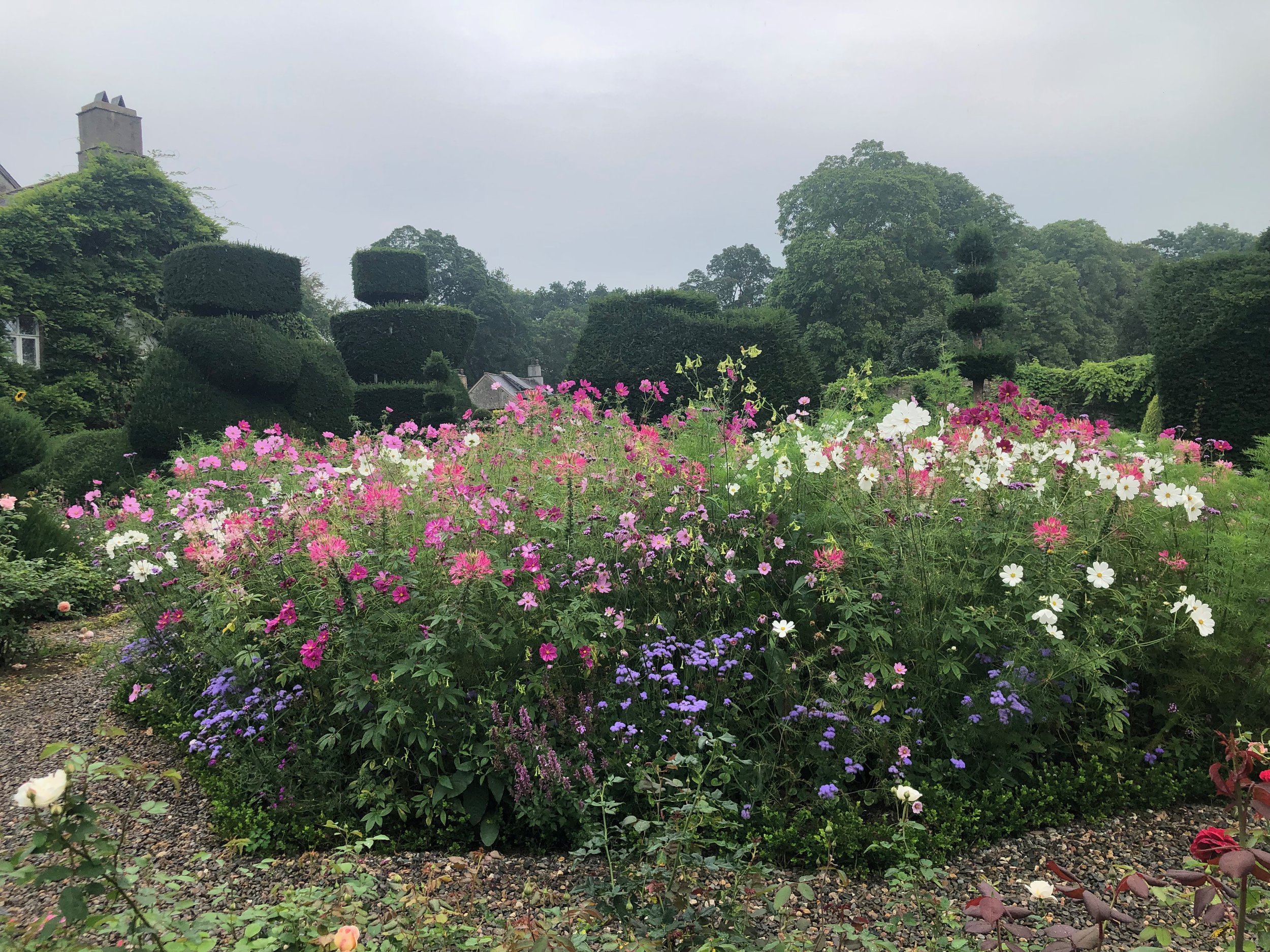

“The experiment” as it was called (2021)
At Levens Hall, you have to deal with the floods and the big task to preserve several hundred-year-old box plants. What would you say is the most challenging part as a gardener at Levens? And what challenges do you think you have to face in the future?
Climate change threatens Levens as much as anywhere. That along with the parts of the garden that are 300 + years old, they are ageing badly. The Great Beech hedge for instance is starting to fall apart. Clipping every year, flooded most winters (thankfully not this year) dry most springs for the last decade and this winter, got battered by Storm Arwen.
There is a limit to how much punishment a plant/tree can take! The weather patterns have changed and the garden is not getting water when it needs it. So far, parts of the Great Beech hedge have been replaced with more beech saplings. There may come a point where it is unsafe to maintain and so the challenge of how to replace it that is more tolerant to the current climate.
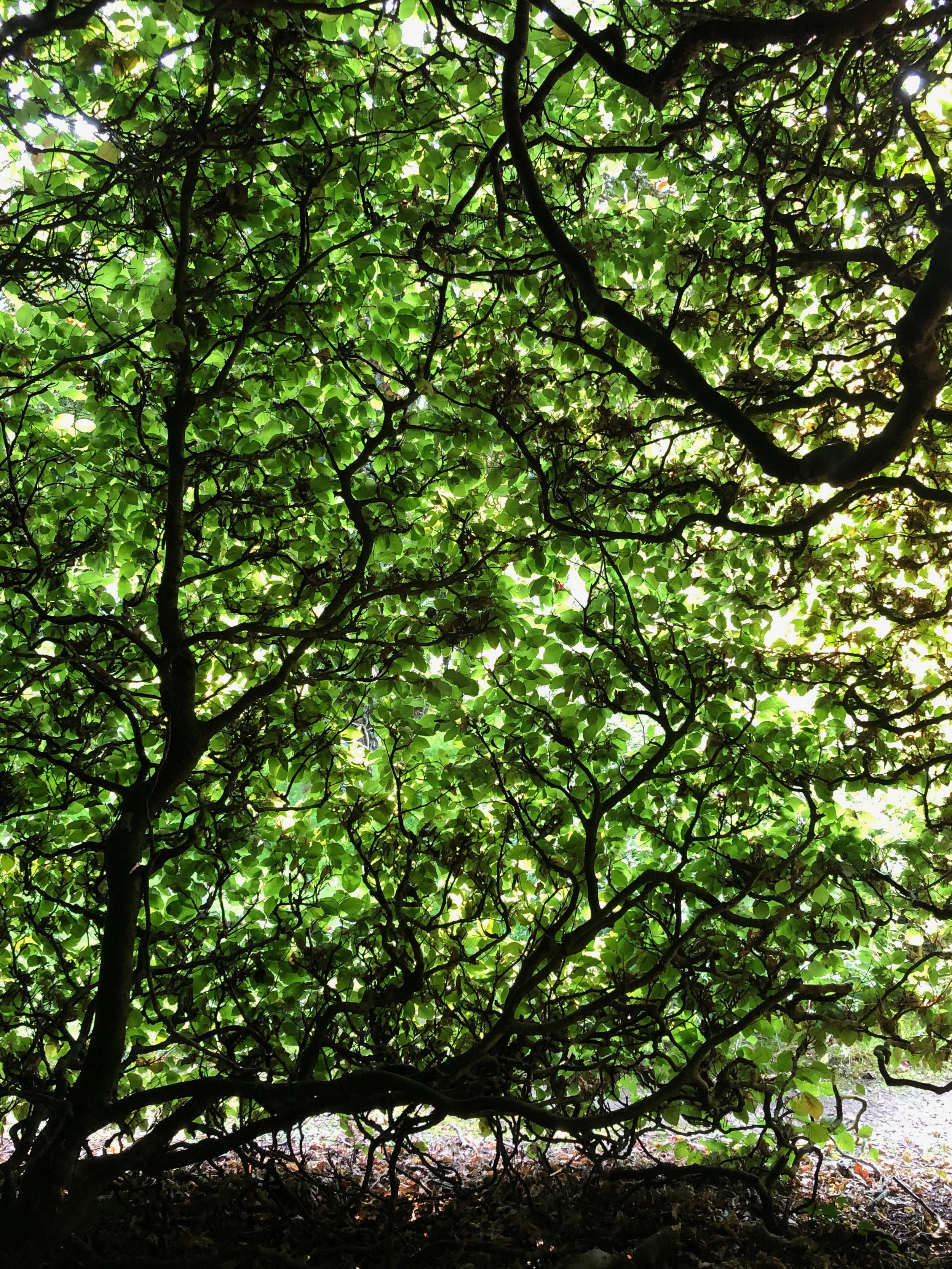
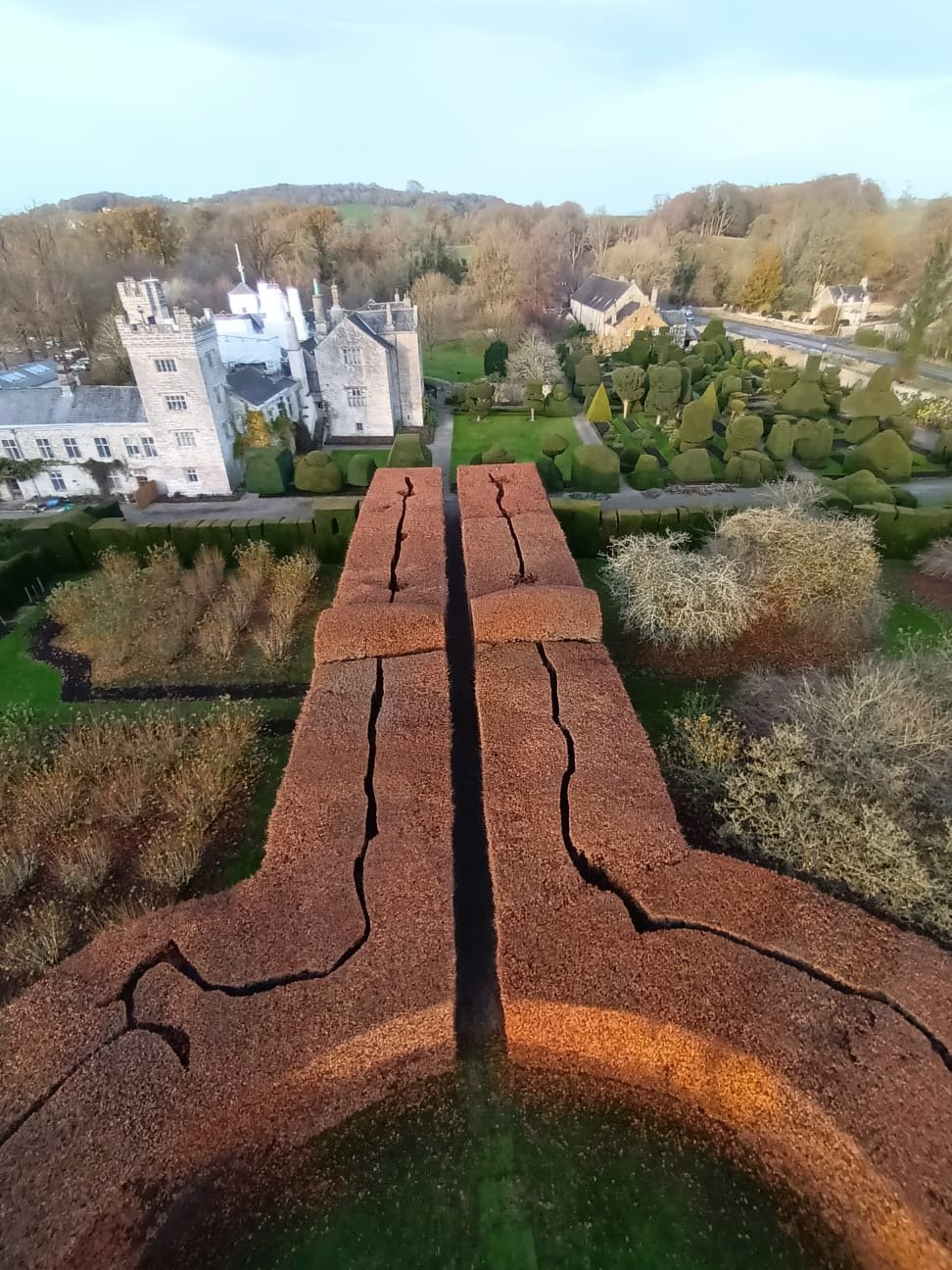

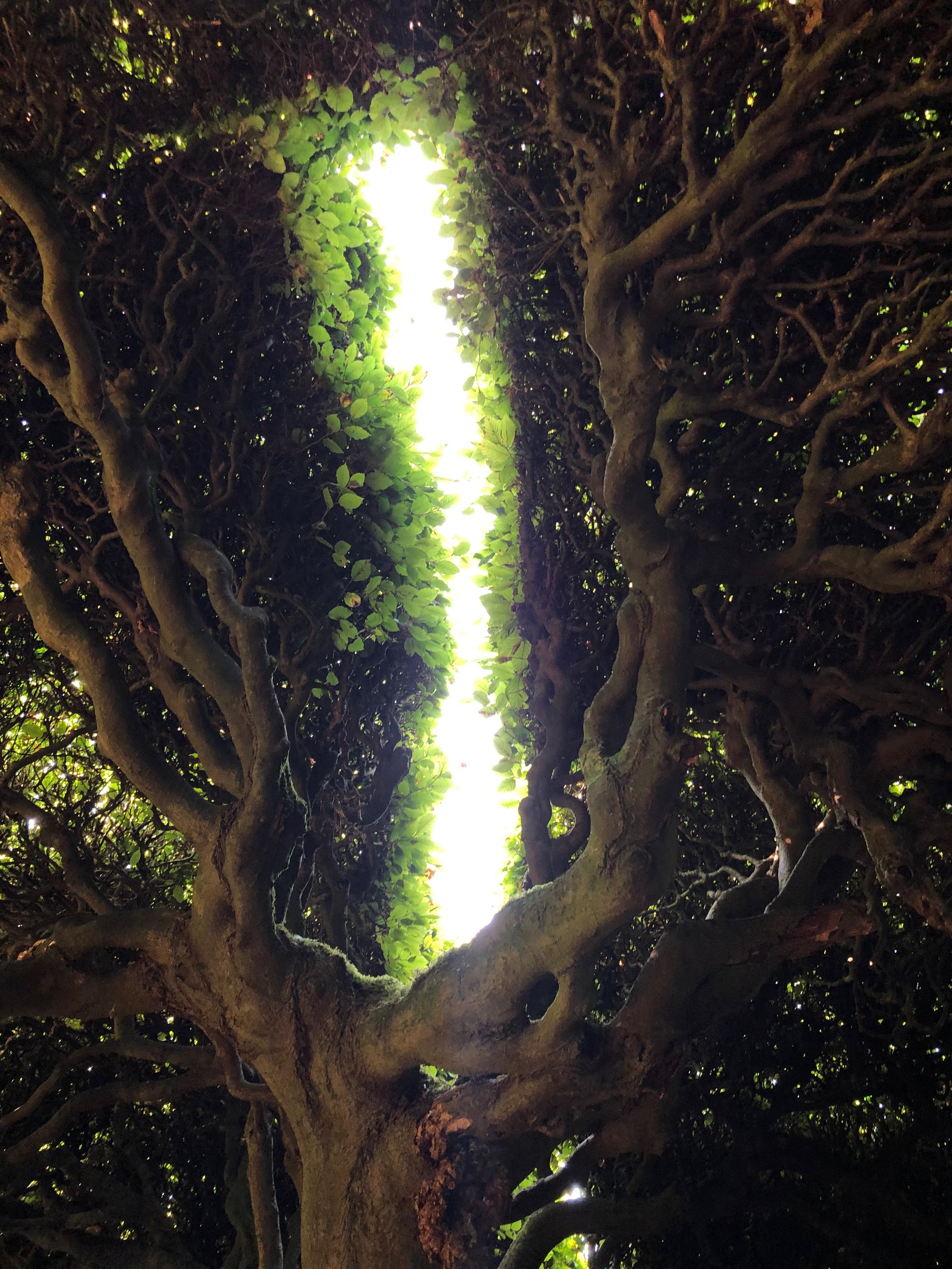
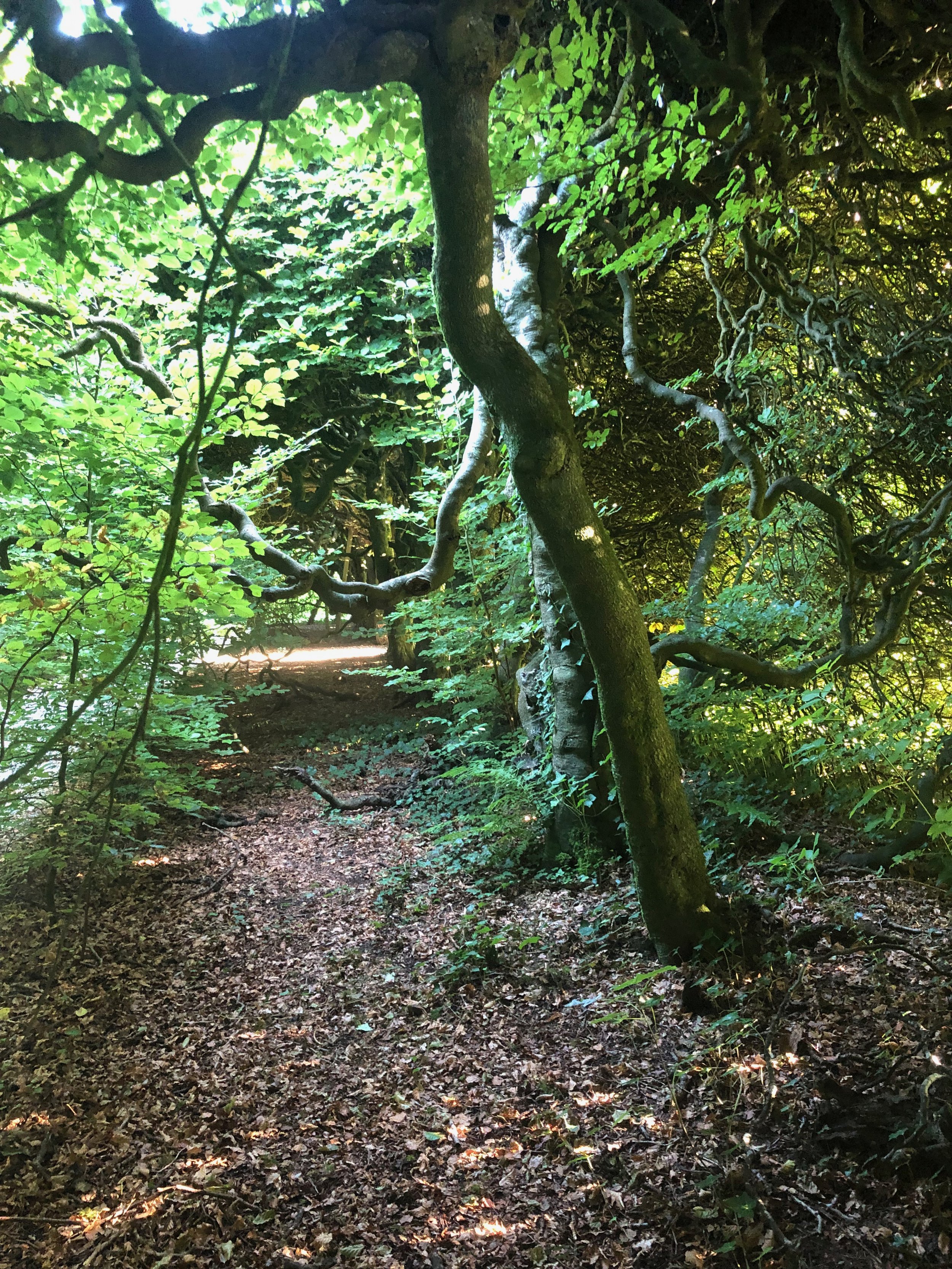
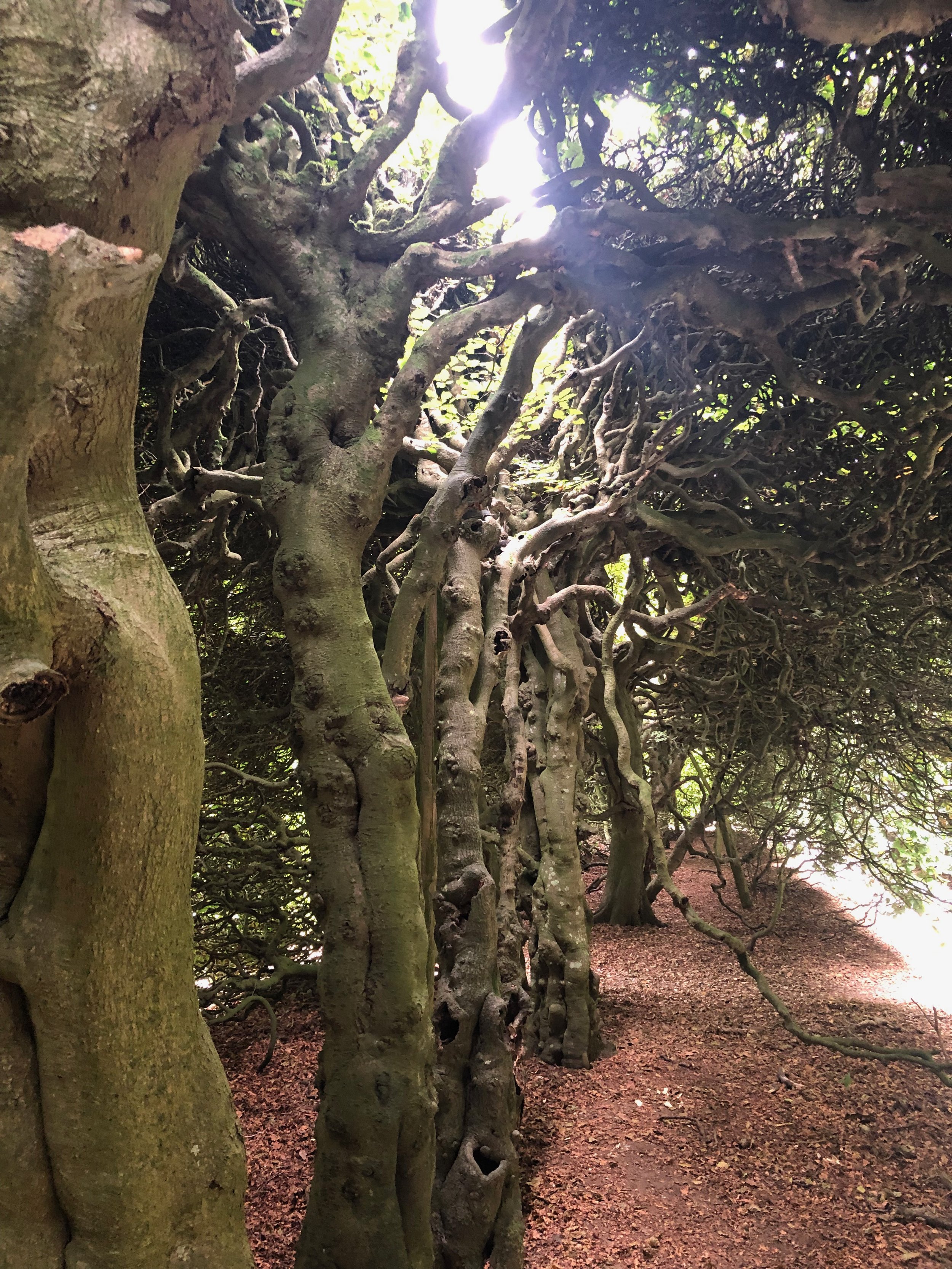
The Great Beech Hedge
Besides Levens Hall and its head-gardener Chris Crowder, do you have a horticultural idol, a style you like the most?
I love prairie planting - a complete contrast to anything at Levens. Piet Oudolf has said the best garden advice I've ever heard - I apply it to all of my work! When asked "When do I cut these plants back" Oudolf said, "When you are bored with it!" I might add that if, particularly prairie plants are looking tatty and have fallen over, then yes "chop it off!"
I have to ask you this because I know you are reliable for a good laugh in the garden: tell me your funniest garden memory.
On my garden round, a client asked why her rhubarb plant was not doing very well.
I said it's because she asked me to dig it out and get rid of it last Autumn!
Do you have some valuable tips & tricks to share for people trying to start with topiary?
Take only little bits off at a time!
Make sure shears are sharp and blades kept lubricated (spray with water is enough) - this keeps the cuts clean. Frisk the sides of the topiary piece with a bamboo cane, so all unruly bits are discovered and trimmed and it's not left for the wind or the blackbirds to find these for you at a later date!
As you devote not only your time and woman power to Levens Hall but also your health. I would love to include the little comic you drew showing the last accident that happened to you at work.
Yes, Horticulture doesn't always go to plan....
If someone wants to contact you, how can they find you.
@333pammy on Twitter :)
Thank you very much For the Interview!
© pictures: Tony Walton, Pam Howson, Karola Prutek
VISIT:
Kendal, Cumbria, LA8 0PD, UK
See also
Books
The Garden at Levens. By Chris Crowder. Photographs Vivian Russell.
‘All Things is Well Here’ – Letters from Huge James of Levens to James Grahme, 1692–95. Edited by Annette Bagot and Julian Munby.


